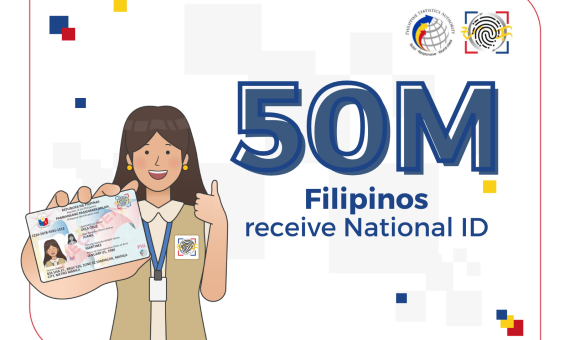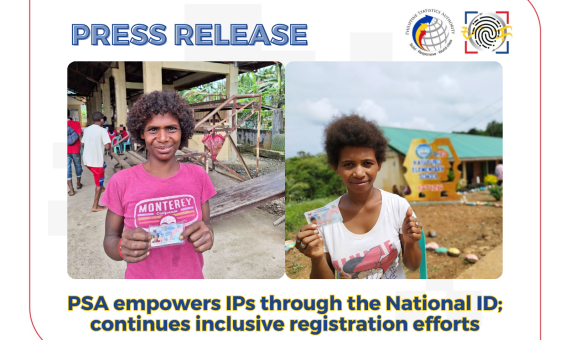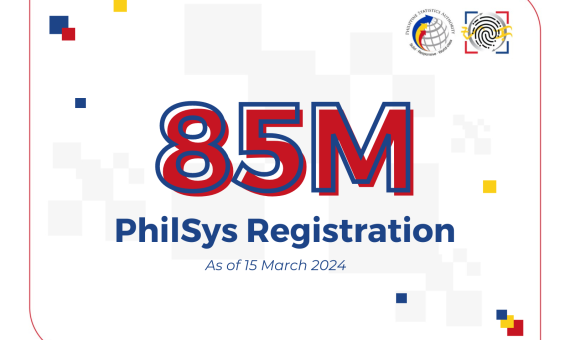Getting ready to register the low-income and unbanked heads of households in the Philippine Identification System (PhilSys) or the national ID system within the year, the Philippine Statistics Authority (PSA) announced the successful conduct of a small pilot test of the PhilSys pre-registration and registration processes in Marikina City held on 28 to 30 July 2020. The activity is part of the PSA’s efforts to identify gaps and improve processes for a safe and seamless roll-out of PhilSys registration in the fourth quarter of 2020.
In partnership with the Local Government of Marikina City, the PSA conducted mock pre-registration, and registration of from Barangay San Roque, Marikina as pre-determined by the local government unit.
The pilot test activity was deemed successful, with participants saying the process was fast, and simple. Nevertheless, as this is only a small pilot, the PSA registration team noted potential issues and identified further improvements before the actual registration starts.
“We tested a pre-registration process last Tuesday, [28 July 2020], where PSA enumerators went house-to-house, while strictly adhering to health and safety protocols, to collect demographic information from household heads who volunteered to join the activity,” said National Statistician and Civil Registrar General (NSCRG) Dennis S. Mapa, Ph.D.
“The pre-registration process is being developed so that only the capture of biometric information, that is, fingerprints, iris scans, and front-facing photographs, will be done during the actual onsite registration process. Mababawasan na po ang estimadong oras ng pagrerehistro sa onsite registration, kasi nakuha na po inyong pangalan, edad, at iba pang impormasyon sa pre-registration pa lamang,” he added.
(The estimated time to be spent during onsite regristration has decreased because we have already collected their name, age, and other demographic information during the pre-registration process.)
Usec. Mapa also noted that the pre-registration system being developed by PSA will also allow the government to manage the number of expected registrants at a given registration center in accordance with established health, and safety protocols.
On the day of the pilot registration, Marikina City Mayor Marcelino Teodoro graced the activity and gave remarks about the PhilSys and the on-going pilot test in the community.
“Ang mga tao… iba rin iyong mayroon silang hawak na ID. May tiwala sila sa sarili nila at higit doon alam nila na bahagi sila ng isang lipunan, bahagi sila ng sistema na maayos kaya napakahalaga nitong Phil ID system natin” Mayor Teodoro said. “We wanted our residents to have the experience, so we can encourage more of them to register once the National ID is formally launched.”
(It is different when the people have their own ID. They feel relevant and, more than that, they know that they are part of a society… that they are part of an orderly system. This is why the Phil ID system is very important.)
Evelyn Bagtas, one of the household heads who participated in the mock pre-registration and registration, said that “Simple lang at ‘di matagal ang interview [sa pre-registration]. Malinaw din ang pagka-explain ng mga dapat gawin.”
(The interview process during pre-registration is simple and does not take long. They also explained the process clearly.)
“Ganoon din [ang registration]. Mabilis at madaling maintindihan ang proseso,” added Bagtas.
(It is the same during registration. The process was fast and easy to understand.)
The PSA enforced the PhilSys’ registration protocols on health and safety in adherence to standards set by the Department of Health. In addition to the regular disinfection of the registration kits used, wearing of face masks, and observing social distancing were strictly observed for the safety of both registrants and registration staff.
While mindful of the Coronavirus Disease 2019 risks, Usec. Mapa said it is important to proceed and fast-track the PhilSys as it is key to enabling people, especially the poor and marginalized, to access services and perform financial and other transactions with both private and public institutions.
The PSA assured the volunteers that all information and data gathered during the activity will only be used for the purposes of pilot testing and will be kept strictly confidential in compliance with the Data Privacy Act of 2012.
The PSA will prioritize the registration of unbanked household heads belonging to low-income families starting in the fourth quarter of this year. By providing formal identification, the PhilSys will help low income families open bank accounts, making them less vulnerable to informal lending practices that charge onerous interest rates and allow faster distribution of future government subsidies. The PhilSys also aims to improve the lives of Filipinos by making transactions with the government simple, safe, secure, seamless, and more efficient.
-Office of the National Statistician





